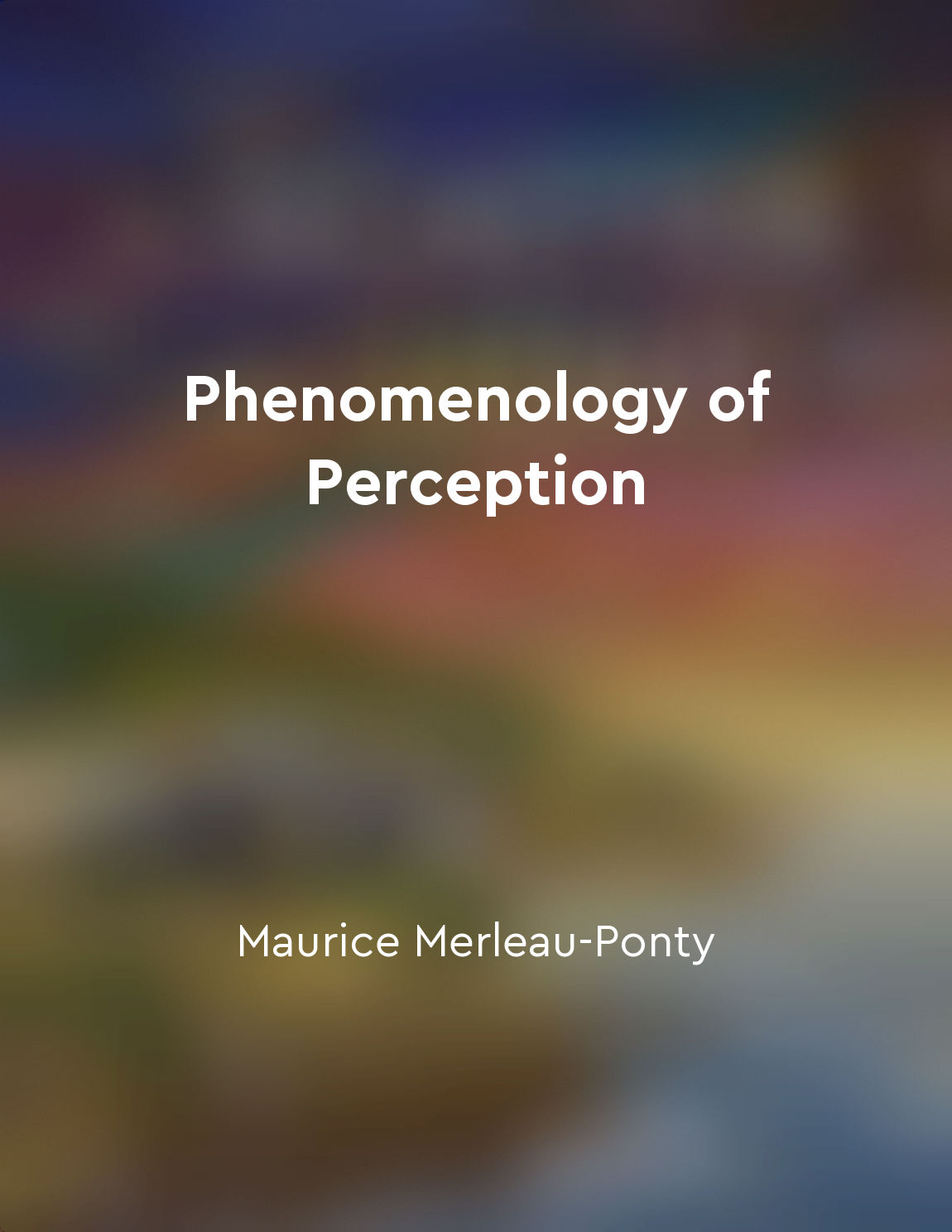Transcendental aesthetic explains sensibility from "summary" of Immanuel Kant: Prolegomena to Any Future Metaphysics by Immanuel Kant
The Transcendental Aesthetic, as expounded in the Prolegomena to Any Future Metaphysics, serves as a foundational framework for understanding the nature of sensibility. Through this philosophical lens, Kant delves into the essential nature of human perception and cognition, shedding light on the fundamental principles that govern our experience of the world. By exploring the relationship between the mind and the external world, Kant aims to uncover the underlying structures that shape our sensory experiences and enable us to make sense of the world around us. Through the Transcendental Aesthetic, Kant argues that our sensory perceptions are not merely passive receptacles of external stimuli, but rather active processes that involve the mind's innate capacities for intuition and synthesis. Sensibility, according to Kant, is the faculty through which we receive sensory impressions and organize them into coherent experiences. It is through sensibility that we are able to apprehend the world in space and time, and to discern the relationships between different objects and events. Kant further elaborates on the concept of sensibility by distinguishing between two forms of intuition: space and time. Space, he argues, is the a priori form of intuition that enables us to perceive the spatial dimensions of objects and their spatial relations. Time, on the other hand, is the a priori form of intuition that governs our perception of temporal sequences and the succession of events. By grounding these intuitions in the Transcendental Aesthetic, Kant seeks to demonstrate how our sensory experiences are structured by these fundamental categories, which serve as the building blocks of our understanding of the world.- The Transcendental Aesthetic serves as a critical tool for unraveling the mysteries of human perception and cognition. By delving into the nature of sensibility and its role in shaping our experience of the world, Kant offers profound insights into the workings of the human mind and the foundations of our knowledge. Through this philosophical inquiry, Kant invites us to reflect on the intricate interplay between the mind and the external world, and to appreciate the profound complexities that underlie our perceptions and interpretations of reality.
Similar Posts

Perception is always situated and contextual
Perception, as we experience it, is never detached from the context in which it occurs. Our understanding of the world is alway...
Artists and poets must be receptive to the whispers of intuition
Artists and poets, in their creative endeavors, must cultivate a receptive attitude towards the elusive whispers of intuition. ...

The body is the locus of our existence
Our body is not just a mere object in the world. It is the very medium through which we experience and engage with the world ar...
The lifeworld grounds all experiences
The lifeworld is the foundational basis of all our experiences, serving as the ground from which they spring forth. It is the b...
The complexities of human desire can be overwhelming
In the intricate web of human desires, we often find ourselves entangled in a labyrinth of conflicting emotions and yearnings. ...

